International Cooperation
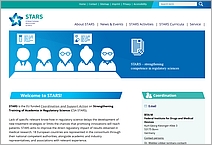 |
|
STARSSTARS was the EU funded Coordination and Support Action on Strengthening Training of Academia in Regulatory Science (CSA STARS). It aimed to complement, coordinate and harmonise regulatory efforts among Member States and at European level to support academic health research for the benefit of patients. |
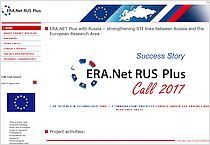
|
|
ERA.Net RUS PlusThe major objective of the ERA.Net RUS Plus initiative was to deepen the transnational collaboration between EU MS/AC and Russia and to reduce the fragmentation of research programmes along national funding lines. After implementing 2 very successful joint calls the project was extended, to facilitate the preparation of a 3rd call. More... |
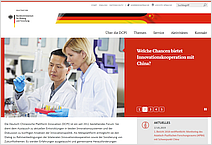
|
Sino-German Innovation PlatformThe Sino-German Innovation Platform (SGIP) was a forum established in 2011. Its aim was to facilitate dialogue on current developments in both innovation systems and a discussion of future approaches in innovation policy. As a meta-platform, it provided a forum for dialogue on the framework conditions of bilateral innovation cooperation and the exploration of topics for the future. More...
|
|
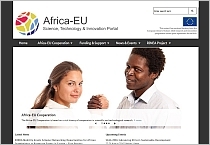
|
Africa-EU STI PortalDuring the project span of the EU initiative RINEA, the portal provided an overview of current calls regarding EU-Africa cooperation, as well as news and events for both regions. Background documents on the history of Africa-EU STI cooperation rounded off the information offered by this portal. More...
|
|
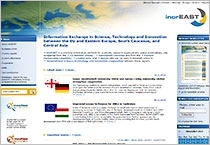
|
|
incrEASTincrEAST was a one-stop information platform about science, technology and innovation cooperation between the EU and the coutries of Eastern Europe, the South Caucasus and Central Asia. The bilingual web portal provided country reports about the science landscapes of twelve countries in these regions, which until 2016 were updated annually. In addition incrEAST offered current news on ressearch policy dialogue and cooperation, events and calls. More (EaP)... | More (CA)...
|
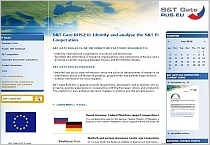
|
S&T Gate RUS.EUThe web portal “S&T Gate RUS.EU” aimed to improve networking between the research structures of the European Union and the Russian Federation, to increase mutual knowledge of the national research landscapes, and thereby to support international co-operation. In addition to background documents and information about research infrastructures, the portal also offered current news, events and calls. More...
|
|
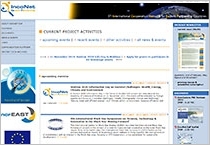
|
|
IncoNet Eastern PartnershipThe IncoNet EaP project aimed to support the advancement of the bi-regional STI (Science, Technology, and Innovation) policy dialogue between the EU Member States/Associated Countries and the Eastern Partnership Countries, with an explicit focus on the Societal Challenges that had been identified to be of mutual interest for the two regions, namely Climate Change, Energy and Health. More...
|
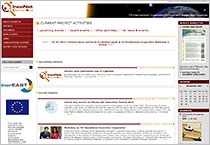
|
|
IncoNet Central AsiaThe IncoNet CA project aimed to support the advancement of the bi-regional STI (Science, Technology, and Innovation) policy dialogue between the EU Member States/Associated Countries and Central Asia, with an explicit focus on the Societal Challenges that had been identified to be of mutual interest for the two regions, namely: Climate Change, Energy and Health. More...
|
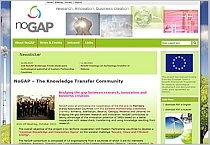
|
NoGAPThis project aimed to bridge the gap between research and innovation, taking advantage of the innovation potential of SMEs based on a better cooperation with researchers, transferring and using knowledge resulting from research. The overall objective of NoGAP was to reinforce cooperation with the Eastern Partnership countries in the field of secure, clean and efficient energy. More...
|
|
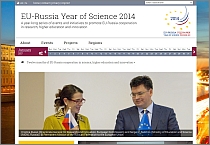
|
EU-Russia Year of ScienceThe EU-Russia Year of Science 2014 was a joint initiative of the European Commission and the Ministry of Education and Science of the Russian Federation. It presented a wide range of events across the EU and Russia in order to highlight the achievements and the potential of the rich science and research cooperation between Russia and Europe. More...
|
|
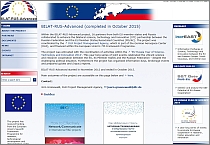
|
BILAT-RUS-AdvancedBILAT-RUS-Advanced was an EU-funded project that aimed to strengthen scientific and technological cooperation between the Russian Federation and EU Member States, accession candidates and associated countries. The website offers information about the project’s activities and was updated continuously over the lifespan of the project. More...
|
|
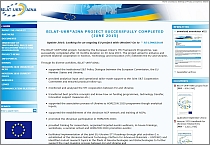
|
BILAT-UKR*AINAThe EU funded project BILAT-UKR*AINA aimed to help intensify scientific and technological cooperation between Ukraine and the EU Member States. It was designed to contribute to the realisation of a common area of research, education and culture.Project activities and events were presented on the project website. More...
|
|
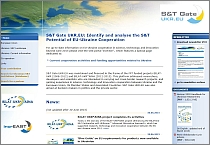
|
S&T Gate UKR.EUThe web portal 'S&T Gate UKR.EU' aimed to contribute to identify and analyse the potential of EU-Ukraine S&T cooperation. The platform addressed researchers, developers and scientists who were interested in carrying out cross-border research projects. S&T Gate UKR.EU was also aimed at decision-makers in politics and the private sector. It offered not only background information, but also current news, events and calls. More...
|
|
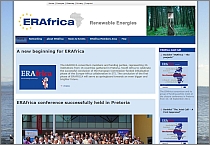
|
ERAfricaERAfrica was an EU project aimed at promoting a unified European approach to collaborating with Africa in the field of science and technology research for innovation and sustainable development. More...
|
|
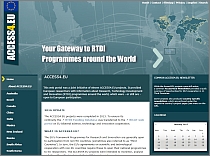
|
ACCESS4EUThe Access4EU projects aimed to inform European scientists about funding opportunities under the national programmes of 11 non-EU countries. As the EU's Research Framework Programmes are generally open to third countries, in turn, the EU's agreements on scientific and technological cooperation with third countries require these countries to open their national programmes to EU researchers. Central element of the web portal was a programme database, which was continually maintained and updated. The web portal was also an access point to the indivual project websites of the 11 participating countries. More...
|
|
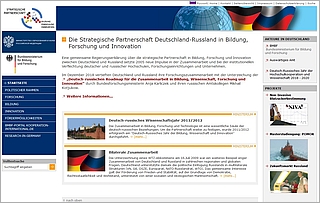 |
Strategic Partnership Russia-Germany in Education, Research and InnovationIn 2005, a joint government declaration on the strategic partnership in education, research and innovation between Germany and Russia gave new impetus to the cooperation and the institutional integration of German and Russian universities, research institutions and companies. More...
|
Science Years and Country Years
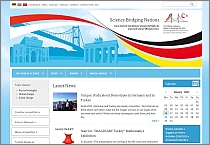
|
|
German-Turkish Year of Research, Education and Innovation 2014Germany and Turkey worked together under the motto 'Science Bridging Nations' to pursue several goals during the joint Year of Science: Both partners were committed to bringing attention to the importance and success of their cooperation and building on the existing STI cooperation with projects that are fit for the future. More...
|
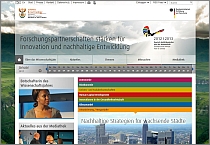
|
Overcoming global challenges together - German-South African Year of Science 2012/2013How can we adapt to climate change without having to slow the pace of growth? What will the cities of the future look like? How can we use resources sustainably? With a joint Year of Science, South Africa and Germany wanted to come one step closer to answering these questions and work together to take on responsibility for global challenges. The German Federal Ministry of Education and Research (BMBF) and the South African Department of Science and Technology (DST) paid tribute to many years of successful scientific and technological collaboration with this joint Year of Science. More...
|
|
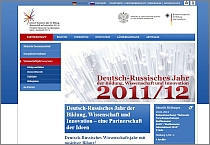
|
German-Russian Year of Education, Science and Innovation 2011/12 (DRWJ)Germany and Russia have worked continuously to expand their collaboration in science and research over the last two decades. In order to further reinforce this partnership, Prof. Annette Schavan, the German Federal Minister of Education and Research, and her Russian counterpart, Prof. Andrei Fursenko, jointly launched the ‘German-Russian Year of Education, Science and Innovation 2011/12’ on 23 May 2011 in Moscow. Numerous events relating to topics of the future were held during the German-Russian Year of Science under the motto ‘Partnership of ideas’. More...
|
|
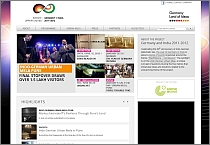
|
|
Germany and India 2011-2012. Infinite OpportunitiesOn the occasion of 60 year of diplomatic relations between Germany and India, both countries celebrated a joint 'Country Year' from autum 2011 to autumn 2012. Themed 'Germany and India. Infinite Opportunities' the activities aimed to enhance and deepen the relations between both countries. The focus was on 'city spaces'. Germany, the 'Country of Ideas' presented itself as a creative and innovative partner to help India solve future challenges in the development of its cities. More...
|
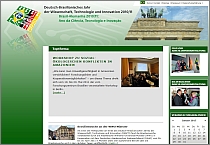
|
German-Brazilian Year of Science, Technology and Innovation 2010/11Germany and Brazil have been partners in science and research for more than 40 years. To celebrate this successful partnership and give it new impetus, Germany's Federal Ministry of Education and Research and Brazil's Research Ministry jointly held the German-Brazilian Year of Science, Technology and Innovation 2010/11, which was kicked off in São Paulo on 12 April 2010. Numerous activities took place in both countries between April 2010 and April 2011 under the slogan sustainable:innovative with the aim to jointly find sustainable and innovative solutions to the challenges of our time. More...
|
|
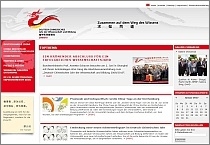
|
|
Sino-German Year 2009/2010The 'Sino-German Year of Science and Education 2009/2010' was opened by the Federal Minister of Education and Research Annette Schavan, her Chinese counterpart Wan Gang and Chinese Vice-Minister of Education Chen Xiaoya with a joint ceremony at the Free University of Berlin on 30 March 2009. The bilingual (Chinese/German) website was launched alongside the opening event. It continuously provided news about all Year of Science activities. More...
|
Other websites
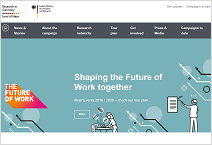
|
|
The Future of Work - Research Marketing CampaignAs Industry 4.0 progresses, work reaches a new level: people, machines, plants, logistics and products communicate directly with each other through intelligent, digitally networked systems, and largely self-organised production becomes possible. |
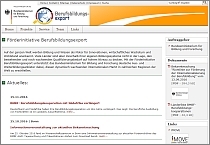
|
|
Förderinitiative Berufsbildungsexport(only in German) Auf der ganzen Welt werden Bildung und Wissen als Motor für Innovationen, wirtschaftliches Wachstum und Wohlstand anerkannt. Viele Länder sind aber innerhalb ihrer eigenen Bildungssysteme bisher nicht in der Lage, den bestehenden und noch wachsenden Qualifizierungsbedarf auf hohem Niveau zu decken. Mit der Förderinitiative Berufsbildungsexport unterstützte das BMBF deutsche Aus- und Weiterbildungsanbieter dabei, diesen dynamisch wachsenden internationalen Markt zu erschließen. More...
|
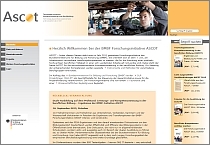
|
|
Ascot(only in German) Hinter diesem Namen stand eine im Jahr 2011 gestartete Forschungsinitiative des Bundesministeriums für Bildung und Forschung (BMBF). Sie orientierte sich an dem Ziel, am Arbeitsmarkt verwertbare Handlungskompetenzen zu messen, die für die Ausübung einer qualitativ hochwertigen beruflichen Tätigkeit in einer sich wandelnden Arbeitswelt notwendig sind. More...
|







